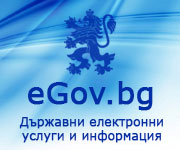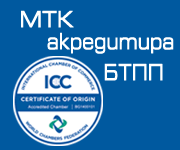Inflation, trade uncertainty and labour gaps cloud business outlook, says new global survey of chambers
Inflation, skilled labour shortages and trade uncertainties are weighing on the outlook for global business, according to a new survey of local business organisations in some 96 countries by the International Chamber of Commerce (ICC). The Bulgarian Chamber of Commerce and Industry also took part in the Survey together with more than 200 partner organisations from all over the world.
The findings of the ICC World Chambers Federation (WCF) 2024 Global Economic Survey capture perspectives from businesses on key economic and sustainability issues across economies that collectively account for 90% of global GDP.
Commenting at the launch of the survey results in Istanbul, ICC Secretary General John W.H Denton AO said:
“As the voice of the real economy worldwide, ICC has leveraged its unique institutional reach to provide a comprehensive global picture of the realities of doing business in today’s increasingly complex environment. We hope this real-time data will help shape the strategic response of governments to the key challenges faced by MSMEs.”
Global business environment
Rising prices and labour costs were cited as a significant challenge in the majority of countries surveyed, with more than 80% of respondents expressing concern that cost pressures will persist into 2025 — casting doubt on recent claims from prominent economists that inflation is “no longer a thing”.
Inflation has translated into significantly higher staffing costs for businesses in some 44 countries— a trend exacerbated in several regions by skills shortages in the local workforce, most notably North America and Europe.
The economic environment and tight financial conditions have hindered access to finance where findings show that high interest rates are limiting access to credit particularly in Sub-Saharan Africa (80%), Latin America and the Caribbean (63%) and South Asia (60%).
Trade uncertainty was cited as a challenge by 50% of chamber respondents — with concerns highest in East Asia and Pacific (69%) the Middle East and North Africa (60%) and Latin America and the Caribbean (50%).
Despite these challenges, the respondents in more than 50% of countries covered by the survey expressed cautious optimism for the outlook for business in their respective economies — suggesting a large degree of resilience in the face of economic and operational risk.
Mr Denton added:
“Though headline rates of inflation have generally receded in recent months, the impact of the price surge seen from 2022 is clearly having a sustained impact on the private sector in many countries. We need policymakers to be sensitive to the disconnect between macroeconomic data and the day-to-day experience of local businesses.”
Outlook on climate action
One month before the United Nations climate summit COP29, the survey also looked at the experience of small and medium-sized enterprises (SMEs) in transitioning to climate-friendly business models.
In developing economies, chambers pointed to difficulties SMEs face in accessing clean sources of energy — both from national grids or decentralised generation.
In advanced economies, SMEs are held back by a perceived lack of access to cutting-edge green technologies and limited in-house capacity to implement emissions reductions programmes.
In both developed and developing economies, access to cost-effective finance to enable investments in decarbonisation was cited as a major challenge — pointing to the need for enhanced public support to enable SMEs to adopt green technologies and upgrade existing facilities.
Rifat Hisarcıklıoğlu, Chair of the ICC World Chambers Federation added:
“This survey highlights the crucial role chambers of commerce worldwide play as private sector champions. They are deeply in touch with the grassroots realities of doing business while maintaining a global perspective and remaining connected through our ICC World Chambers Federation.”
Read more and download the full report.
Още новини:
-
22-10-2024

 1 USD =
1 USD =  1 GBP =
1 GBP =  1 CHF =
1 CHF =  ISO 9001:2015
ISO 9001:2015
































